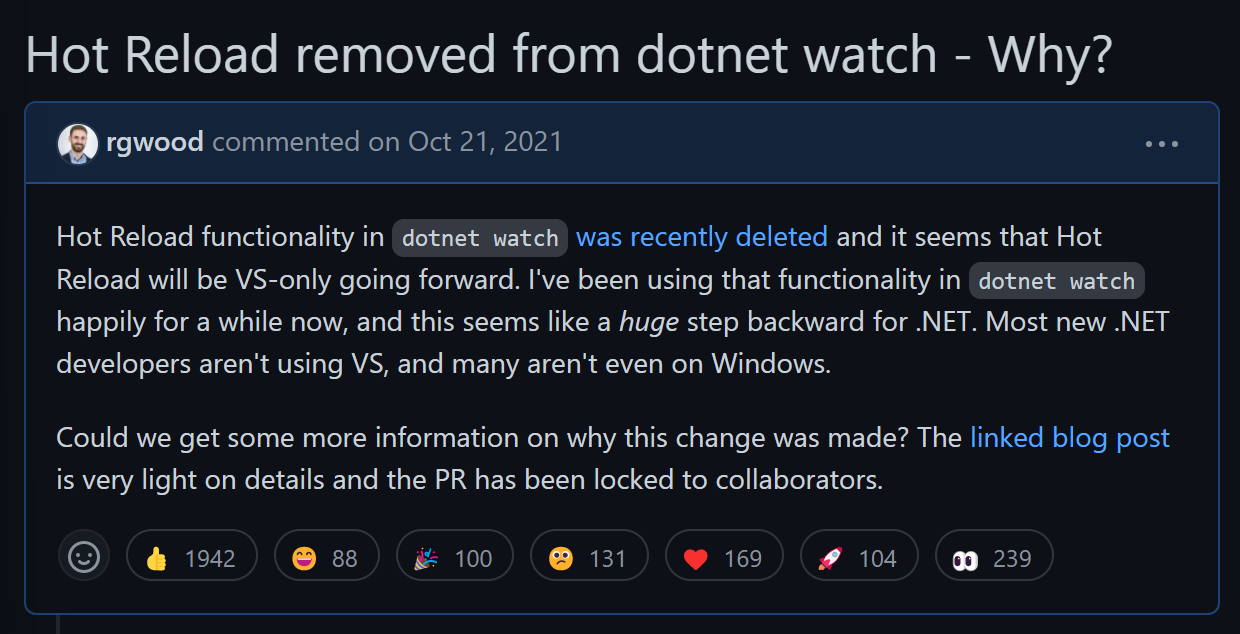
I had a weird week back in October, and it all started when I posted this GitHub issue.
What happened?
The .NET team built a feature called Hot Reload for .NET 6, which would allow for code to be changed while an application is running. It was planned as a feature for all of .NET from the start:
Our goal is to provide a consistent dev inner loop experience in .NET Core across all platforms, architectures, and workloads.
A preview version of the feature landed in April 2021 and by October it was pretty much done. I used Hot Reload throughout the preview period and loved it. Then at the last minute, Microsoft announced that the feature would be locked to Visual Studio; to say I felt disappointed would be an understatement. I posted on GitHub asking for more information, and I soon found out that many, many others felt the same way.
There was a huge community uproar, I was quoted in multiple news articles, and Microsoft eventually backed down. It was a happy ending, but I was still left with a bitter taste in my mouth.
OK, so what?
To many people, it’s not obvious why this was such a big deal. I think there are 2 main reasons:
- Quick feedback isn’t a niche feature; it’s an essential element of any creative activity.
- Limiting Hot Reload to Visual Studio would exacerbate .NET’s existing weaknesses.
I’ve rambled about 1 before, so I’ll focus on 2 here.
.NET’s at a bit of a disadvantage when it comes to cross-platform development, in both perception and reality. The tooling situation outside of Visual Studio (or Rider) often leaves much to be desired, and newcomers often get a poor first impression from the OmniSharp tooling in VS Code. Hot Reload in dotnet watch is a big step forward for .NET outside of Visual Studio; it’s a feature I can point to and say “yes, .NET has good tooling no matter where you use it.”
That’s the crux of the matter; removing Hot Reload from dotnet watch would harm .NET in an area it needs to do much better in. The .NET team understands this, but the change was imposed on them by senior Developer Division leadership against strong internal opposition. This suggests that senior leadership does not understand .NET (bad) or prioritizes Visual Studio over the long-term health of .NET (worse).
I like working in .NET, and the .NET team is doing a world-beating job of pushing the ecosystem forward from its stodgy enterprise-first origins. It’s unsettling that senior Developer Division leadership was willing to throw so much away to sell a few Visual Studio licenses.



